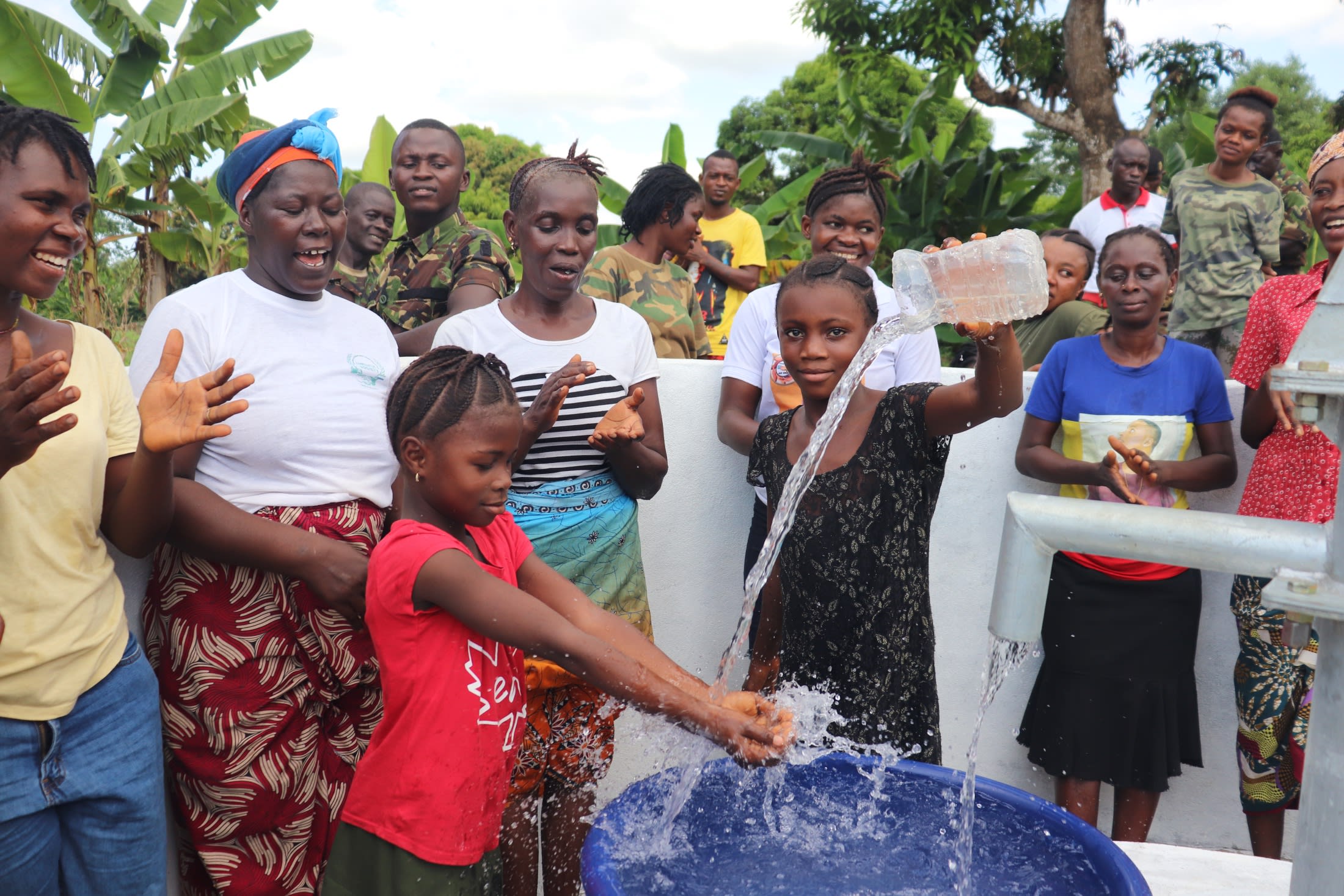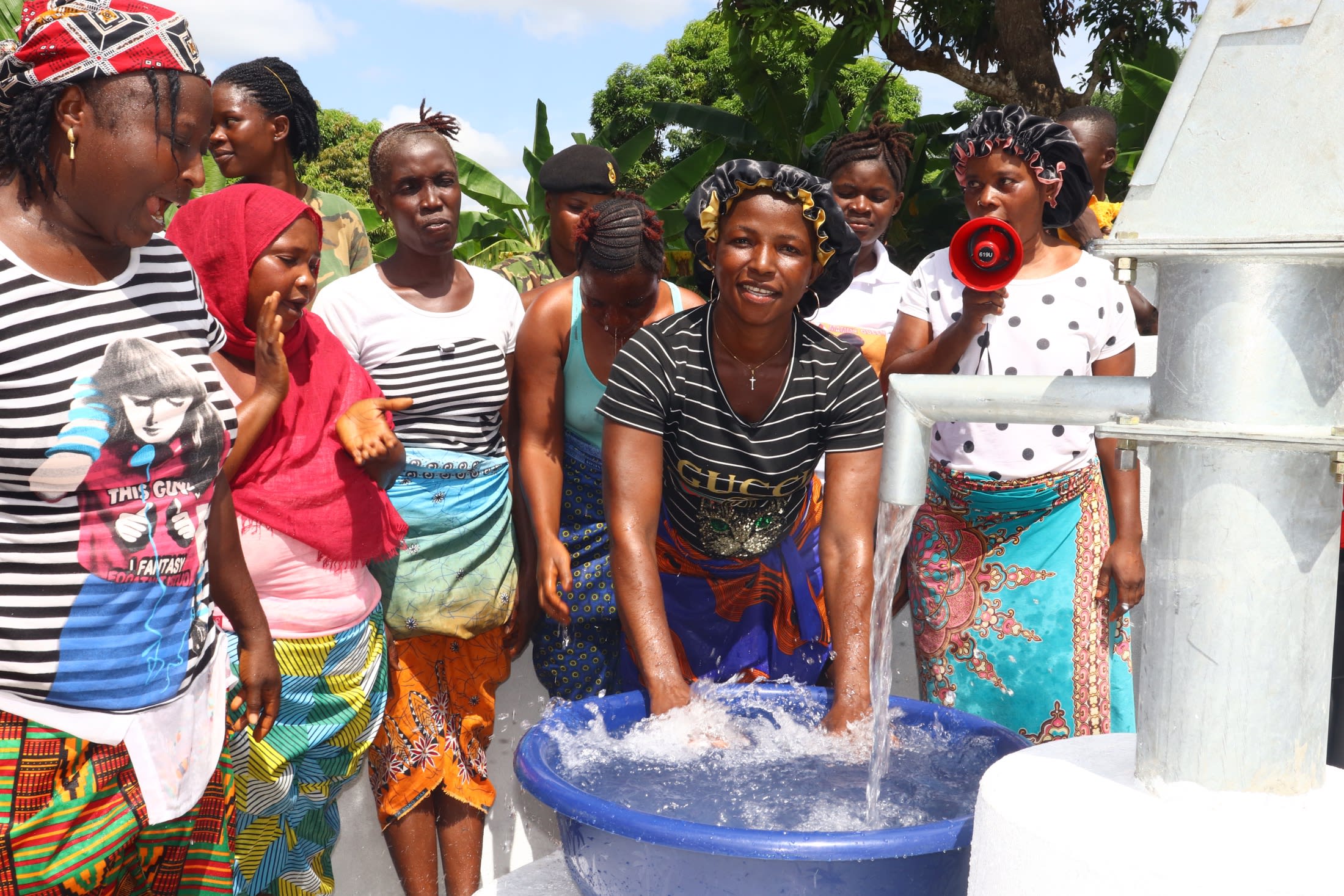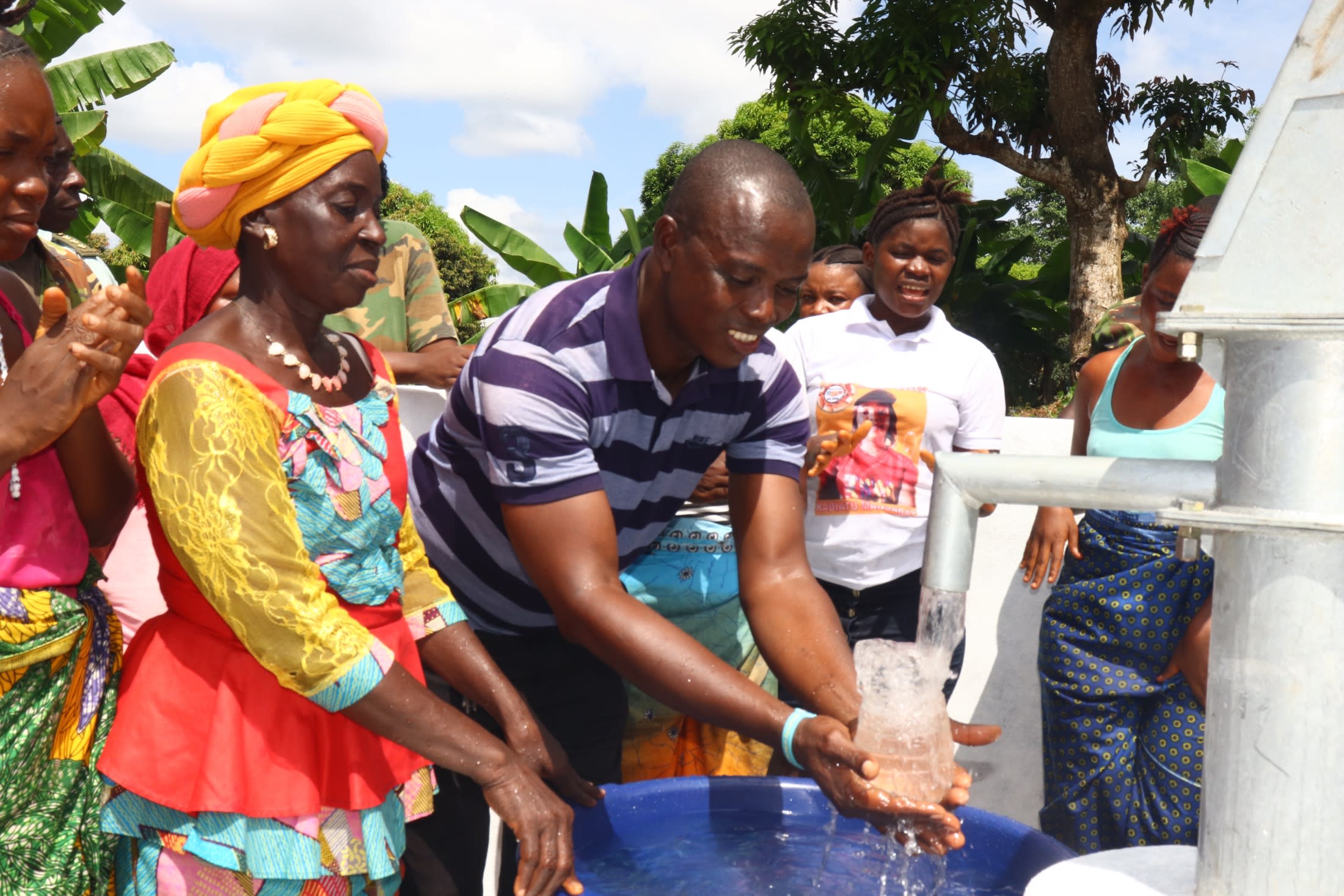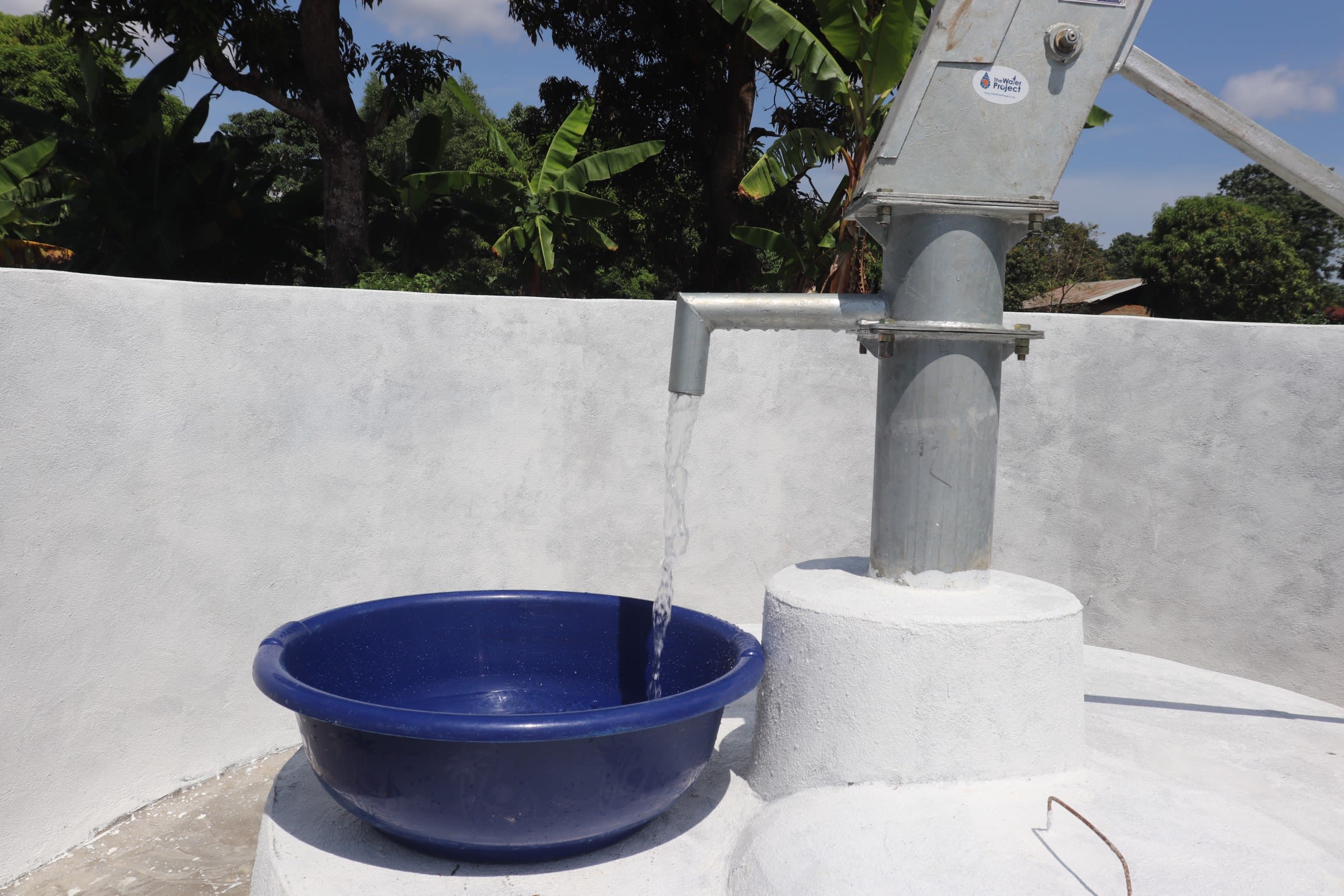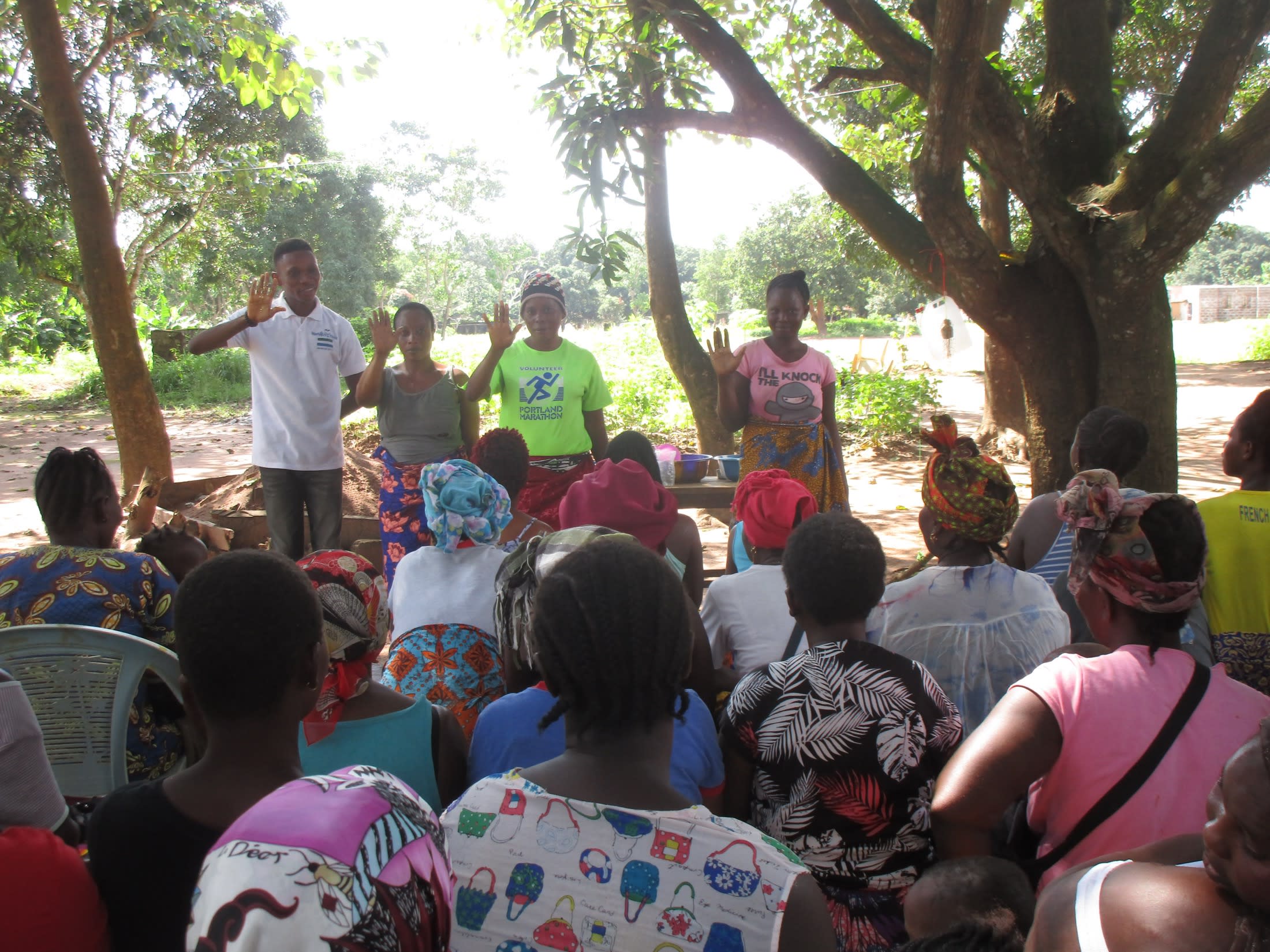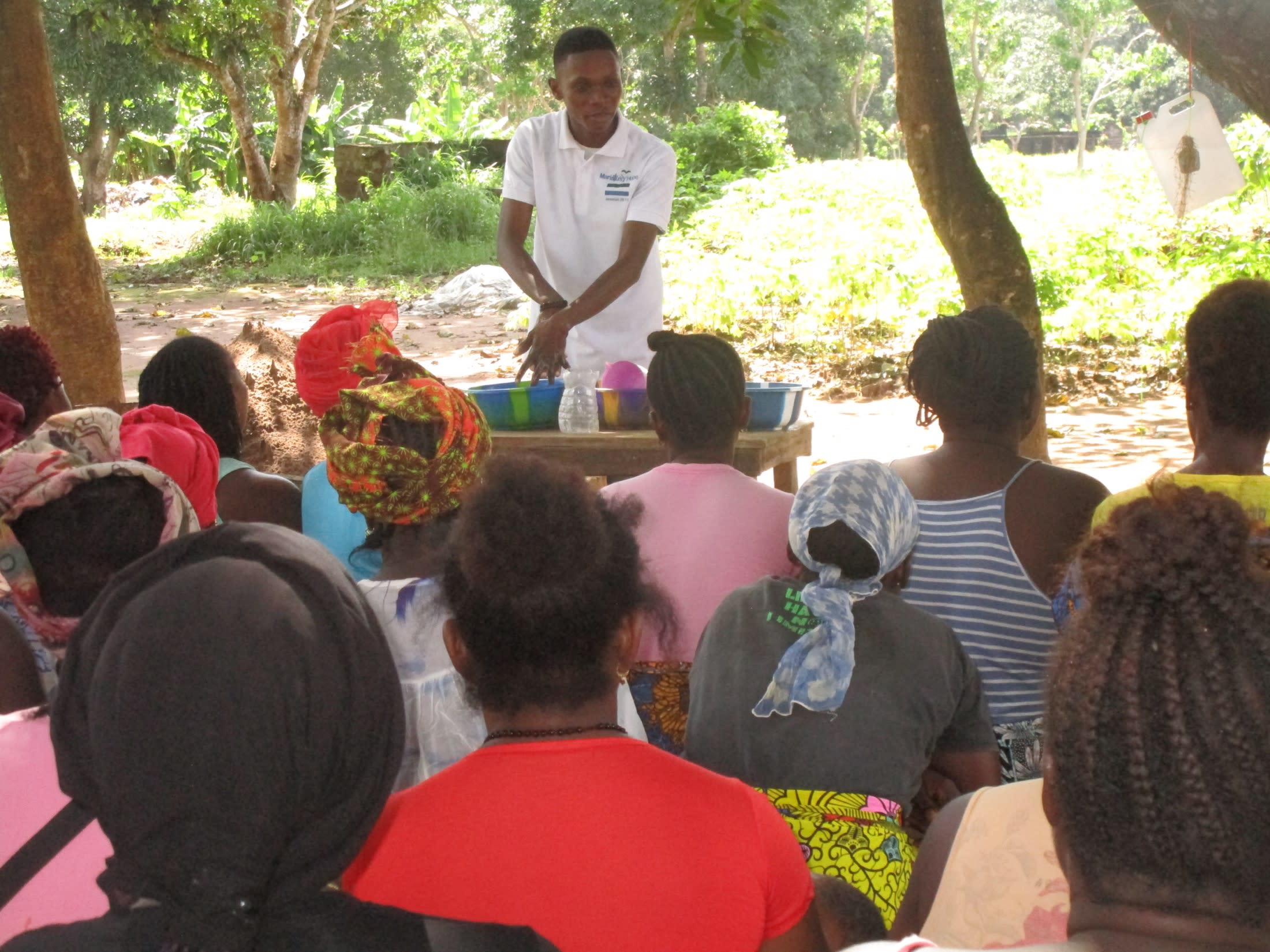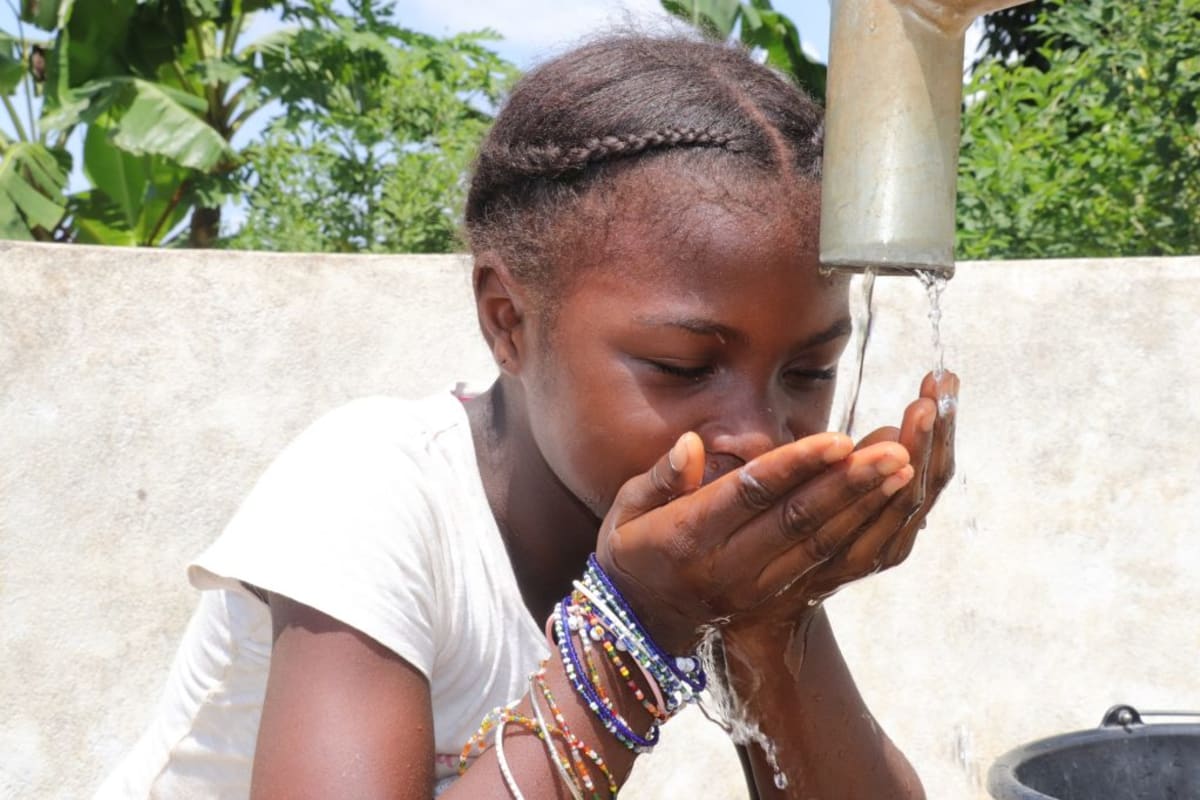Originally, the dug well (shown below) serving the 155 people that live near Suctarr military barracks was an open, unprotected well without a hand pump. A year after it was installed by another organization, a hand pump was added, but the well was not dug any deeper. Due to frequent breakdowns, seasonal dryness, and dirt that circulated in the water, the community members stopped fetching water there.

The other water sources are another unprotected dug well, which is farther away in a swampy area, or a public standpipe near the military barracks, but they both present serious issues.
The well (shown below) is far away, overcrowded and open to contamination. Collecting water is especially difficult since people have to bend over a cement box and dip their bucket down into the water while hanging upside down.

Both the well and standpipe experience overcrowding and seasonal dryness, leaving people searching for water wherever they can find it.
"I must take care of my children before they go to school," said 39-year-old petty trader Kadiatu Mansaray, shown collecting water below.
"Early in the morning, I must fetch water to bathe my children [and] prepare them for school, but due to [the] water crisis in the community, they sometimes [are] late for school. When they [are] off from school, I must launder their uniforms, and I [must] fetch drinking water. Now I must go to the swamp well to fetch water, but it is located far away from my community."

"The water is not pure to drink, [and] when [I] drink such water I experience illness such as diarrhea and typhoid. My children [are] sick frequently," said Kadiatu.
"I face too many water problems in this community. Before, this water well was in good order, so it helped me greatly, but now the well is not functioning," said 15-year-old Patrick S., shown below carrying water. "For the past years, people are not fetching water from this well."

"I must walk far away to different communities to fetch water. Sometimes when I reach the well, the owner [has] locked it. Most often, the water well is not open on time, so this causes me to [be] late for school. When I return home from school, I must fetch water [for] home [again]. I have to fetch water to do housework like wash utensils (dishes), launder my uniform, [and] prepare food for us," said Patrick.
"I will be grateful if this project renews this water well," concluded Kadiatu.
Here’s what we’re going to do about it:
Well Rehabilitation
The well marked for this overhaul is dry for a few months every year and needs major work to supply adequate, clean water to the community year round. The pump will be removed, and a hand auger will be lowered inside and powered by a drill team. This hand auger will allow the team to drill several meters deeper to hit a sufficient water column that will ensure the well supplies water throughout all seasons.
As the team drills, casing will be installed, transforming the bottom of this hand-dug well into a borehole. PVC piping will connect this lower system directly to the pump, a construction that we know will also improve the quality of water.
Once this plan is implemented, everyone within the community will have access to safe drinking water in both quality and quantity, even through the dry months.
Hygiene and Sanitation Training
There will be hygiene and sanitation training sessions offered for three days in a row.
After our visit, the hygiene and sanitation trainer decided it would be best to teach community members how to build a tippy tap (a hand-washing station built with a jerrycan, string, and sticks). They will use these tippy taps for handwashing demonstrations, and will also teach about other tools like dish racks and the importance of properly penning in animals.
These trainings will also strengthen the water user committee that manages and maintains this well. They enforce proper behavior and report to us whenever they need our help solving a serious problem, like a pump breakdown.

 Borehole Well and Hand Pump
Borehole Well and Hand Pump
 Rehabilitation Project
Rehabilitation Project








